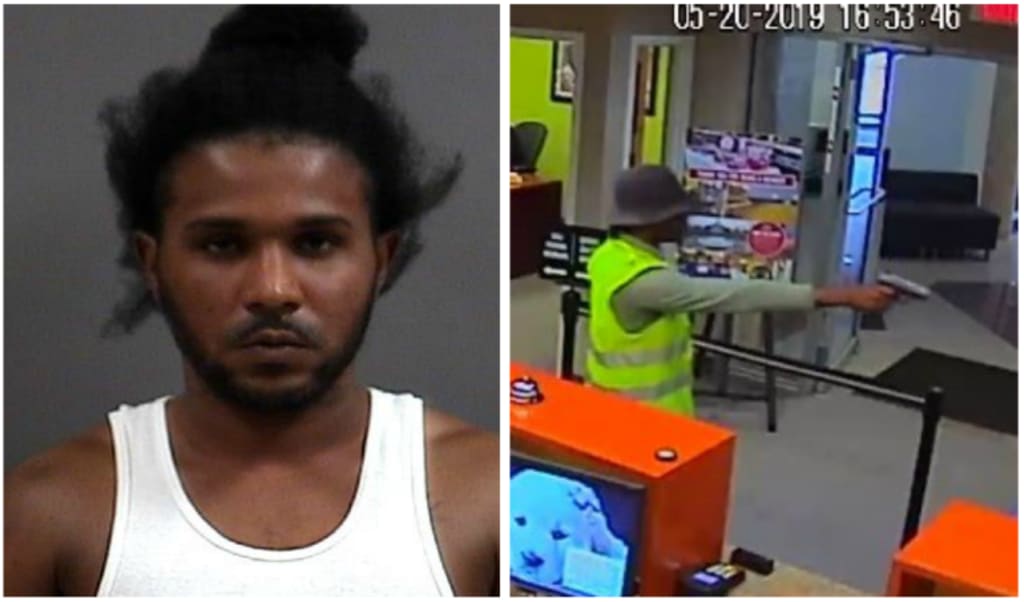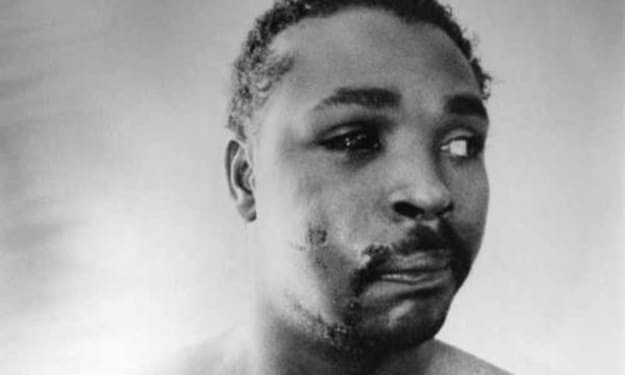Google's Gift To Cops Catches Criminals and Innocent Bystanders
The American Police State Has Finally Arrived

The right of the people to be secure in their persons, houses, papers, and effects, against unreasonable searches and seizures, shall not be violated, and no Warrant shall issue, but upon probable cause, supported by Oath or affirmation, and particularly describing the place to be searched, and the persons or things to be seized.”
– Fourth Amendment, US Constitution
An alleged Virginia bank robber has turned the tables on local police by accusing them of violating his privacy because they requested and received data from Google on him and 18 others at or near the crime scene.
Don’t laugh because many privacy advocates, while not condoning the actual crime, say that the alleged bank robber does raise some valid, even constitutional, claims here. This case does, in fact, have serious implications for the rights of millions of Americans who use Google products.
The Crime
Call Federal Credit Union of Midlothian, Virgina was robbed last May of more than $195,000. Surveillance footage shows a man armed with a handgun and rushing into the bank.
The Department of Justice alleges that that man was 24-year-old Okello Chatrie.
Google To The Rescue
Chesterfield County Police asked Google for location information on everyone who had been within a 150 meter radius of the bank within an hour before, during and after the robbery. Google readily complied, handing over anonymous data on 19 individuals, according to NBC News.
The cops quickly eliminated ten possible suspects and then asked and received from Google more specific (non-anonymous) info on the remaining nine suspects.
With Google’s help, they then got down to four individuals. Now the police wanted and received even more identifying and specific data, including user names, email addresses, and phone numbers.
With all of this information, it wasn’t long (four months) before police arrested Chatrie on August 13 on charges of armed robbery, forced accompaniment and brandishing a firearm. Chatrie faces life in prison if convicted.
The Right to Privacy versus Catching Criminals
Chatrie’s attorney and privacy advocates argue that the police violated his rights by targeting a geographic region rather than a specific individual. As reported by the New York Times, however, this policing tactic is becoming more and more popular among law enforcement types and is referred to as a “geofence warrant.”
A geofence warrant, theoretically, attempts to “reimagine” the crime scene for an internet-connected world. Obviously, casting such a wide net will inevitably “capture” innocent bystanders, whose personal information will be gathered and then given to the cops. This is a heretofore unheard of use of surveillance tools, and indeed is hard to “imagine” occurring before the advent of smartphones.
“Individuals may be caught up in this search by merely using an Android phone, conducting an Internet search using Google, running a Google application such as Google Maps or YouTube, or even receiving an automatic weather update from an Android service,” Chatrie’s attorney, Michael Price, argued in a motion to dismiss.
A Brave New World of Policing?
In an interview with Insider, ACLU staff attorney Nathan Wessler worried over what he calls a lack of accountability associated with geofence warrants.
“The issue in these cases is that Google is sitting on an incredible volume of user location data,” Wessler said. “That information can reveal extraordinarily private details of people’s lives. There’s a real risk that without proper constraints, these requests will start to resemble the types of things the framers of the Fourth Amendment were so concerned about.”
Whether or not Chartrie is found guilty of bank robbery in this case is beside the point, and is actually irrelevant to the privacy/constitutional questions raised, says Wessler.
Wessler also took on the idea that geographic data collection is synonymous with an actual, brick and mortar, physical crime scene.
“When police are searching a physical crime scene, they are looking for physical evidence left behind like blood samples,” Wessler said. “What we are talking about here is a digital record held by a company that millions of Americans trust to take care of their most sensitive data. Police have access to a completely new capability without comparison in the history of policing.”
Google and the Cops
As might be expected, Google vigorously defends itself and its cooperation with police in executing geofence warrants. In a statement provided to NBC News, Google allowed that it strives to strike a balance between the privacy rights of customers and compliance with cops.
“We vigorously protect the privacy of our users while supporting the important work of law enforcement,” said Richard Salgado, Google’s director of law enforcement and information security.
“We have created a new process for these specific requests designed to honor our legal obligations while narrowing the scope of data disclosed and only producing information that identifies specific users where legally required.”
Of course, this is not a new issue for social media companies or the police. It was only last year when the Supreme Court ruled that police must first secure a warrant before requesting cell phone tower data on individuals from telecommunications companies. That ruling, however, was limited strictly to cell phone towers.
But, because more and more cell phones are equipped with more and more precise location service apps like Google Maps, do these same court-ordered rules now apply to the actual tech companies as well?
For its part, Google is almost alone in its eagerness to comply with police demands. Apple, for example, uses security features that block access to an iPhone’s Lightning port after one hour. That makes it difficult, if not impossible, for police to access the contents of a phone. Recall that in 2016, Apple refused demands by the FBI to unlock an iPhone used in a terrorist attack in San Bernardino, California.
Wessler does give a nod to Google for its efforts to protect users, but he also urged that more legislation be enacted to ensure that cops stay in their lane and don’t overstep or trample peoples’ rights.
“At the end of the day Americans shouldn’t have to be put in the position of having to trust negotiations between private companies and police to protect our rights,” Wessler said. “What we need is clear, strong rules from courts and lawmakers explaining what’s appropriate and what’s not appropriate for police to do.”
Opinion:
In the case of the Virginia bank robber, should the eighteen other people caught in the cops’ electronic dragnet be considered as “collateral damage”? Once they have finally been eliminated as “suspects” or “persons of interest,” what will police do with the treasure trove of personal information their “geofence” warrants have obtained?
As outlined above, this “situation,” of course, raises the knotty constitutional question of the right to privacy and freedom from unreasonable intrusions by the government. However, the Fourth Amendment does not guarantee protection from all searches and seizures, but only from those conducted by the government — and, importantly, deemed unreasonable under the law. (Google is --at least not yet--an "official" or even "shadow" arm of the government).
To claim violation of the Fourth Amendment as the basis for suppressing evidence or the dismissal of a case altogether, the courts have long required that the claimant prove that he or she was the victim of an invasion of privacy.
However, the Supreme Court has recently departed from this requirement, mandating that the issue of exclusion of evidence or dismissal is to be determined solely after resolution of the question as to whether the claimant’s Fourth Amendment rights have been violated, which in turn, requires that the claimant demonstrate a justifiable expectation of privacy, and that that expectation was arbitrarily and summarily violated by the government.
And that is the crux of the matter: The expectation of privacy question.
Certainly no one inside a bank may claim a “reasonable expectation of privacy.” Surveillance cameras are everywhere inside and outside most banks, and most people know, understand, and accept this “intrusion” upon their privacy as a necessary evil for the bank’s and their own protection.
Likewise, any potential bank robber must (or should) know that he or she is going to be on camera whenever he or she plies his “trade.” But in this case, our bank robber is arguing that once he left the bank, not only were his privacy rights restored, but in order to get to him, the police also had no right to violate his rights or those of the innocent people who just happened to be near him.
An interesting argument, no?






Comments
There are no comments for this story
Be the first to respond and start the conversation.